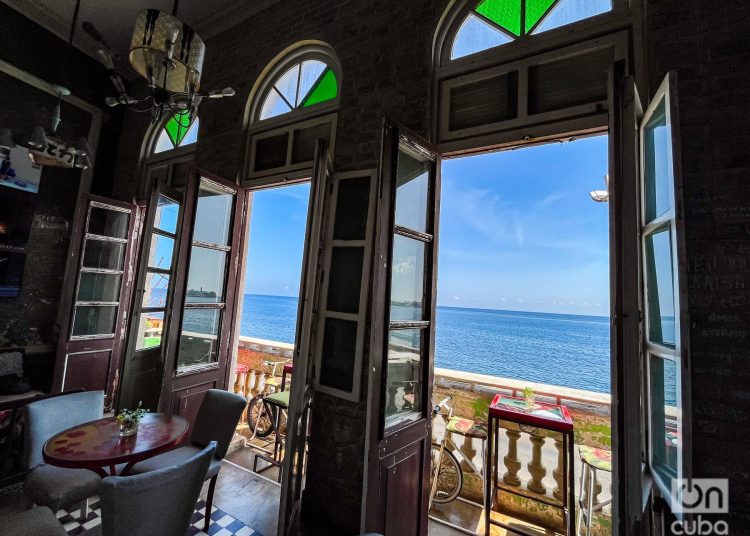It has been announced that the updating the Decree-Law that allowed the existence of MSMEs is being carried out. It was something announced from the moment the decree was made public back in August or September 2021, nine months after the earthquake of the Reorganization and four after the events of July 11. Neither of these facts directly relates to the SME phenomenon in Cuba, but both are part of the birth pains.
Two other circumstances, COVID-19 and the increase in harassment of Cuba throughout the line promoted and implemented by the Trump administration, had a much more direct relationship with the new creature. Both made much more difficult the situation of the Cuban economy and the combination with long-standing structural failures and errors in carrying out the reform. The delivery was with forceps and in a place more similar to the African savanna — with many predators lurking — than to a safe, aseptic room in a hospital. But, despite everything, there was rejoicing, joy, and hope, despite those who were against.
Barely six months after its birth, the new creature demonstrated the enormous entrepreneurial energy of Cubans that for decades was contained, made impossible. Concepts and “truths” about socialism, which have never been confirmed in practice, always ended up slipping through the cracks of the first regulations that since 2010 began to allow self-employment. When Cubans reached another “business environment,” outside the border, those concepts resurfaced, with which our country and especially the people who created the national wealth invested in forming that “human capital/potential” lost and still loses years of investment that it gave and gives away to other countries.
Today, entire tourist destinations, emerging despite regulations and “guidelines” are an example of this entrepreneurial initiative. Such is the case of Viñales and Trinidad, to name just two examples. Meanwhile, at the other extreme, we have the precursor experience of Old Havana, wisely led by Eusebio Leal, who knew how to understand the potential of that entrepreneurial energy and sheltered and channeled it and cured voluntary blindness. Leal opened minds, convincing with his work that it is the best way to win. I confess that even today, here in Cuba, I do not know of another local development project that has been so successful.

In the end, the creature born at the wrong time and under abnormal conditions began to grow and take up spaces that for years were empty or were poorly and inefficiently used and also began to demonstrate how much more can be done.
There is nothing better than success to attract the attention, the suspicions, the concerns of the bureaucracy and the fear of the defenders of the status quo, those here and those there, since both have rightly identified them as a threat that puts their old arguments into “miraculous static” and makes more than evident the need for a profound transformation of our economy and, above all, of our conception of the country that we can build together.
Dozens of questions, suspicions, and envies disguised as political concerns and legitimate political concerns hang over the role of SMEs and the future of Cuban socialism. It would be too naive to pretend otherwise.
The questions that arise from all of this are almost infinite. I will list some of them, very few. My answers will be short, they do not contain all the necessary arguments, they will probably be biased by my condition as an economist, an advisor to some SMEs and an enthusiast; but, above all, for the experience of these last 45 years of observing the efforts to achieve development based on socialism and of consciously participating in it.
1How many MSMEs are needed in Cuba?
Nobody can say with certainty. If we look at the number of private businesses that the state eliminated in 1968 — about 56,000 —, which also include businesses with less than 3 people (what we today call self-employed workers and would not be classified as MSMEs); and taking into account that today we have a much larger population than then, it is logical to think that we need many more MSMEs than today’s 9,000. If we compare with some neighboring countries, we are still far away. The Dominican Republic has more than 1 million and Costa Rica more than 400,000.
2 Are MSMEs an exclusively local actor?
Well, obviously not. In fact, the current decree-law allows them to have subsidiaries in other territories, which stimulates competition between them with the impact it must have on their efficiency and productivity. Without a doubt, their relationship with the “local” should have an important weight in their activity, but I do not think it is convenient to limit them to their locality, understood as a municipality or province. I hope the new regulations do not make that mistake.
3 Should local governments be in charge of the MSMEs’ approval process?
I would prefer that the creation and approval of MSMEs be a process that follows international practice and only involves the notary, the commercial registry, the National Office for Tax Administration (ONAT), the bank, etc. It would be the most transparent way. In short, the government, neither national nor local, runs any risk, nor does it spend a cent on it. On the contrary, the more MSMEs there are, the more income derived from taxes, fees and contributions would reach the governments coffers.
The way to make MSMEs participate more in the development strategy of municipalities is through incentives. Local governments should be given the power to generate them and should use as practice the launch of tenders with important incentives to stimulate the participation of MSMEs and cooperatives in those projects that contribute the most to the strategies of their municipalities. But this depends on the implementation of greater decentralization of fiscal, price and interest rate incentives at the central government level.

4 Is there any proven relationship between the number of MSMEs and the loss of the driving capacity of the national economy?
The diversity of actors and their quantitative and qualitative growth is not at odds with the ability to drive the economy. At least, that is what the experience of China and Vietnam seems to demonstrate.
However, the proliferation of MSMEs does deeply question, down to its very roots, the way in which this economy has been and is “driven” until today.
In fact, today, this capacity, derived from forms of management and planning typical of many decades ago, is more than questioned. The multiple crises that the country is suffering today are irrefutable proof of this.
Creating these new driving capabilities forces us to break away from inherited schemes and concepts and takes bureaucracy out of its comfort zone in all the dimensions in which it has existed and exists.
Who can imagine ministries without subordinate state enterprises, or cooperatives without “relationship bodies,” etc.? In soccer terms that is called “playing without the ball.”
5 Are MSMEs the cause of the poor execution and poor results of the state enterprise?
Here the answer may be shorter although there are hundreds of written pages arguing, for decades, about this poor execution of the state enterprise, in addition to public data that proves it.
The truth is that the problems of poor execution of state enterprises and their unsatisfactory results precede the birth of SMEs by decades.
In practically all the Congresses of the Association of Economists of Cuba, it has been a mandatory topic, solutions have been proposed and in all of them it has been possible to verify that, to a large extent, these solutions have not been adopted.
What is certain is that the dynamics of MSMEs have made the limitations of the state enterprise more evident and have shown that part of these poor results is due to the lack of autonomy they suffer and their subordination to the bureaucratic apparatus of the ministries.
6 Are MSMEs the reason for inflation?
Factors that have contributed to the inflationary spiral include the supply deficit; the excess liquidity caused by the monetization of the fiscal deficit and its magnitude; the increase in the exchange rate in the informal market; public expectations; to which we would have to add the effects of the reorganization task. All are factors that precede the birth of SMEs.
However, it is also true that the increase in the demand for dollars to import or to invest that MSMEs have generated fuels the dynamics of inflation as they have influenced the appreciation of the dollar against the CUP, due to the inability of the national banking system to satisfy that demand for dollars.
7 Should there be an entity that represents MSMEs and leads the dialogue with regulatory institutions?
Today it is a necessity. Having a formal dialogue with the government and regulatory entities is the best way to add and achieve synergies that lead to qualitative improvements.
I would vote with both hands in favor of such an entity as long as it arises from MSMEs and for MSMEs. Provided that those who direct it are proposed by the members of the organization and are elected by direct and secret vote of the members of that organization. As long as it is financed 100% with the contributions of its members. Provided that its independence from any other State institution is recognized and its autonomy is guaranteed by law.
Now that it has been officially declared that MSMEs are not enemies, perhaps that will pave the way for the compression of regulators and PRODUCE regulations more appropriate to their characteristics, to be able to build together the country we want.









